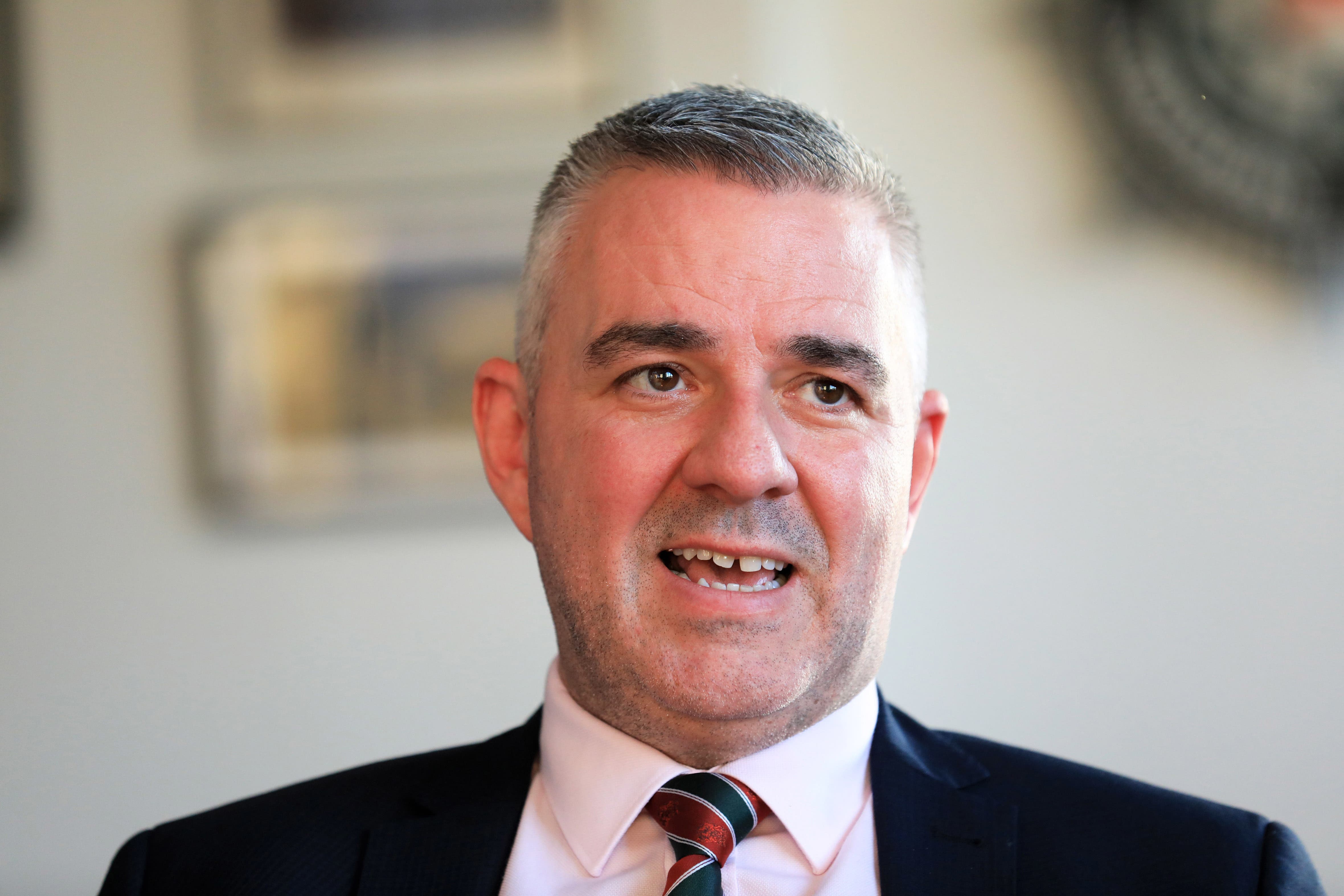50 serving police officers in NI have applied to work in Australia, MPs told
The Northern Ireland Affairs Committee heard evidence from PSNI officer and staff associations.

Fifty serving police officers in Northern Ireland have applied to work in Australia and 199 have asked for ill-health retirement this year, MPs have been told.
Liam Kelly, chairman of the Northern Ireland Police Federation, also told the Northern Ireland Affairs Committee that a major data breach within the Police Service of Northern Ireland (PSNI) will have a “massive detrimental impact” on future recruitment to the force.
The committee heard evidence from officer and staff association groups following the publication of an independent review into the data leak.
In August the details of almost 9,500 PSNI officers and staff were mistakenly published in response to a freedom of information (FoI) request.
I have spoken to 29 of my officers within the Catholic Police Guild who have gone out and bought camera equipment, doorbell cameras
The list included the surname and first initial of every employee, their rank or grade, where they are based and the unit in which they work.
Police later said the information is in the hands of dissident republicans.
On Monday, a review into the incident, headed by Pete O’Doherty, temporary commissioner at the City of London Police, made 37 recommendations.
It said the breach was the consequence of the service not seizing opportunities to secure and protect its internal information and pointed to a “siloed approach” to information management functions.
Asked about the impact of the breach on future policing numbers, Mr Kelly said: “I have no doubt that the data breach has had a massive detrimental impact on future recruitment.”
He said the review report was an opportunity for the PSNI to demonstrate its desire to improve around the management of data.
Superintendent Gerry Murray, from the Catholic Police Guild of Northern Ireland, said: “I think the recruitment with regards to coming from the Catholic, nationalist and republican community has been severely dented.”
Warren Scott, the PSNI departmental assistant secretary at the Northern Ireland Public Service Alliance, told MPs that 75% of recent applicants for a civilian detention officer position had withdrawn from the process.
He said: “That is really showing what people in the public are now thinking about having the PSNI as an employer.”
The witnesses were also asked about the impact of the breach on serving officers and staff members.
Mr Murray said: “Our members are still fearful and still anxious.
“When the data breach occurred it was the middle of summer, we were all enjoying children, grandchildren enjoying the summer holidays.
“We are now into the middle of winter with most of our staff, police officers, are going to work during the hours of darkness and coming home in the hours of darkness.
“My people are fearful.”
He added: “I have spoken to 29 of my officers within the Catholic Police Guild who have gone out and bought camera equipment, doorbell cameras.
“This will go on for some time. This will not be resolved this year or next year because fear and the exclusion some feel is still very much with them.”
This year we have 199 people asking for ill-health retirement. That is a 100% increase on normal
Mr Kelly drew attention to the “hidden aspect” of the impact on officers.
He said: “What we have seen is a massive increase in people presenting themselves to occupational health and asking for help and support.
“Unfortunately occupational health within the organisation has been underfunded and under-resourced.
“To see a psychologist in PSNI there is an eight-month waiting list. You can imagine the personal impact on someone who is struggling with their mental health that they can’t see and talk to someone for eight months.”
He added: “What we have also seen is an exponential rise in the number of officers who are citing the data breach as the final straw for them in relation to either staying in service or applying for ill-health retirement.
“This year we have 199 people asking for ill-health retirement. That is a 100% increase on normal.
“The data breach has been cited as the straw that broke the camel’s back for people.
“They feel let down by the organisation, unsupported by the organisation and can’t see a pathway of coming back to the organisation.”
Mr Kelly continued: “What we are seeing is our officers are committed to doing the best they can, people are struggling and looking for help and unfortunately that help is either negligible or is so far down the line that they are now looking at alternatives.
“We have 50 of our officers have applied to go to Australia, that is just extraordinary.
“In years gone by you could count those on one hand. We now have 50 officers who have put themselves forward to say we no longer think we can serve in Northern Ireland, we want to remain within policing and Australia is the option for them.”
Bookmark popover
Removed from bookmarks